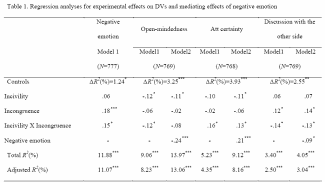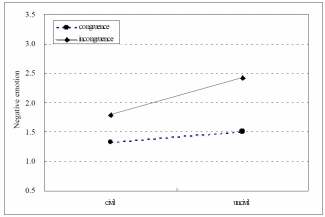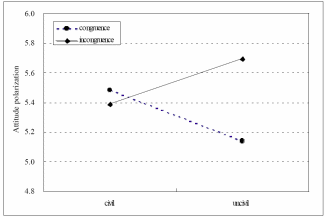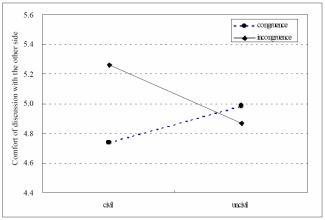References
Adamic, L. A. & Glance, N. (2005). The political blogosphere and the 2004 election: Divided they blog. Communications of the ACM, 36-43.
Altschuler, G. C., & Blumin, S. M. (2001). Rude Republic: Americans and Their Politics in the Nineteenth Century: Princeton University Press.
Barber, B. (1984). Strong democracy: Participatory politics for a new age. Berkeley, CA: University of California Press.
Benhabib, S. (1996). Toward a deliberative model of democratic legitimacy. In S. Benhabib (Ed.), Democracy and difference (pp. 67–94). Princeton, NJ: Princeton University Press.
Bohman, J. (1996). Public deliberation: Pluralism, complexity, and democracy. Cambridge, MA: The MIT Press.
Brooks, D. J., & Geer, J. G. (2007). Beyond Negativity: The Effects of Incivility on the Electorate. American Journal of Political Science, 51, 1-16.
Brown, P., & Levinson, S. C. (1987). Politeness: Some universals in language usage: Cambridge University Press.
Chambers, S. (1996). Reasonable democracy: Jürgen Habermas and the politics of discourse. Ithaca, NY: Cornell University Press.
Cohen, J. (1989). Deliberation and democratic legitimacy. In A. Hamlin & P. Pettit (Eds.), The good polity: Normative analysis of the state (pp. 17–34). Cambridge, UK: Basil Blackwell.
Cox, H. C. (1987). Verbal abuse in nursing: A report of a study, Nursing Management, 18, 47- 50.
Cox, H. C. (1991a). Verbal abuse nationwide, part 1: Oppressed group behavior. Nursing Management, 22, 32-35.
Cox, H. C. (1991b). Verbal abuse nationwide, part 2: Impact and modifications. Nursing Management, 22, 66-69.
De Dreu, C. K. W., & van Knippenberg, D. (2005). The possessive self as a barrier to conflict resolution: Effects of mere ownership, process accountability, and self-concept clarity on competitive cognitions and behavior. Journal of Personality and Social Psychology, 89, 345-357.
Eagly, A. & Chaiken, S. (1993). Psychology of Attitudes. New York, HBJ.
Edwards, K., & Smith, E. E. (1996). A disconfirmation bias in the evaluation of arguments. Journal of Personality and Social Psychology, 71, 5-24.
Funk, C. (2001). “Process Performance: Public Reaction to Legislative Policy Debate.” In J. R. Hibbing and E. Theiss-Morse (Eds.) What Is It About Government That Americans Dislike? (pp. 193–204). New York: Cambridge University Press.
Gambaro, S., & Rabin, A. I. (1969). Diastolic blood pressure responses following direct and displaced aggression after anger arousal in high-and low-guilt subjects. Journal of Personality and Social Psychology, 12, 87-94.
Garramone, G. M. (1984). Voter Responses to Negative Political Ads. Journalism Quarterly, 61, 250-259.
Gentry, W. D. (1970). Effects of frustration, attack, and prior aggressive training on overt aggression and vascular processes. Journal of Personality and Social Psychology, 16, 718- 725.
Gentry, W. D. (1972). Biracial aggression: I. Effect of verbal attack and sex of victim. The Journal of Social Psychology, 88, 75-82.
Gutmann, A., & Thompson, D. (1996). Democracy and disagreement. Cambridge, MA: Harvard University Press.
Hokanson, J. E. (1961). Vascular and psychogalvanic effects of experimentally aroused anger. Journal of Personality, 29, 30-39.
Holtgraves, T. (1997). Styles of language use: Individual and cultural variability in conversational indirectness. Journal of Personality and Social Psychology, 73, 624–637.
Jessmer, S. L., & Anderson, D. (2001). The effect of politeness and grammar on user perceptions of electronic mail. North American Journal of Psychology, 3, 331-346.
Kashani, J. H., Burbach, D. J., & Rosenberg, T. K. (1988). Perception of family conflict resolution and depressive symptomatology in adolescents. Journal of the American Academy of Child and Adolescent Psychiatry, 27, 42-48.
King, A. B. (2001). Affective dimensions of Internet culture. Social Science Computer Review, 19, 414-430.
Kingwell, M. (1995). A Civil Tongue: justice, dialogue, and the politics of pluralism: Penn State Press.
Kinney, T. A., & Segrin, C. (1998). Cognitive moderators of negative reactions to verbal aggression. Communication studies, 49, 49-71.
Lee, H. (2005). Behavioral strategies for dealing with flaming in an online forum. The Sociological Quarterly, 46, 385-403.
Lerner, J. & Tetlock, P.E. (1999). Accounting for the effects of accountability. Psychological Bulletin, 125, 255-275.
Lyotard, J. F. (1984). The Postmodern Condition. Minneapolis, MN: University of Minnesota Press.
Mansbridge, J. (1983). Beyond adversary democracy. Chicago, IL: University of Chicago Press.
Mansbridge, J. (1983). Beyond adversary democracy. Chicago, IL: University of Chicago Press.
Mansbridge, J. (1996). Using power/fighting power: The polity. In S. Benhabib (Ed.), Democracy and difference: Contesting the boundaries of the political (pp. 46–66). Princeton, NJ: Princeton University Press.
Mendelberg, T. & Oleske, J. (2000). Race and public deliberation. Political Communication, 17, 169-191.
Mutz, D. C., & Reeves, B. (2005). The new videomalaise: Effects of televised incivility on political trust. American Political Science Review, 99, 1-15.
Mutz, D.C. (2006). Hearing the other side: Deliberative versus participatory democracy. Cambridge: Cambridge University Press.
Mutz, D.C., & Martin, P.S. (2001). Facilitating communication across lines of political difference: The role of mass media. The American Political Science Review, 95, 97-114.
Ng, E., & Detenber, B. H. (2005). The impact of synchronicity and civility in online political discussions on perceptions and intentions to participate. Journal of Computer-Mediated Communication, 10 (3), article 4. http://jcmc.indiana.edu/vol10/issue3/ng.html
O’Reilly, T. (2007). Call for a blogger’s code of conduct. Retrieved Jan 30, 2007, from radar.oreilly.com Web site: http://radar.oreilly.com/archives/2007/ ... log_1.html
Papacharissi, Z. (2004). Democracy online: civility, politeness, and the democratic potential of online political discussion groups. New Media and Society, 6, 259-283.
Phillips, T., & Smith, P. (2004). Emotional and behavioural responses to everyday incivility: Challenging the fear/avoidance paradigm. Journal of Sociology, 40, 378-399.
Price, V., Nir, L., & Cappella, J. N. (2006). Normative and Informational Influences in Online Political Discussions. Communication Theory, 16, 47-74.
Rainie, L., & Horrigan, J. (2007). Election 2006 Online. Report from the Pew Internet & American Life Project.
Rule, B. G., & Hewitt, L. S. (1971). Effects of thwarting on cardiac response and physical aggression. Journal of Personality and Social Psychology, 19, 181-187.
Segrin, C., & Fitzpatrick, M. A. (1992). Depression and verbal aggressiveness in different marital couple types. Communication Studies, 43, 79-91.
Sunstein, C. (2001). Republic.com. Princeton, NJ: Princeton University Press.
Talmadge, J. (1987). The Flamers Bible. Retrieved October 29, 2007, from http://www.netfunny.com/rhf/jokes/88q1/13785.8.html
Tesser, A. (1978). Self-generated attitude change. Advances in Experimental Social Psychology, 11, 181-227.
Tesser, A., Martin, L. & Mendolia, M. (1995). The impact of thought on attitude extremity and attitude-behavior consistency. In R. E. Petty & J. A. Krosnick (Eds.) Attitude Strength: Antecedents and Consequences. (pp. 73-92). Mahwah, NJ: Lawrence Erlbaum Associates.
Uslaner, E. M. (1993). The Decline of Comity in Congress: University of Michigan Press.
Vissing, Y. M., Straus, M. A., Gelles, R. J., & Harrop, J. W. (1991). Verbal aggression by parents and psychosocial problems of children. Child Abuse and Neglect, 15, 223-238.
Warren, M. (1992). Democratic theory and self-transformation. American Political Science Review, 86, 8–23.
Warren, M. (1996). Deliberative democracy and authority. American Political Science Review, 90, 46-60.
Weger, H., & Aakhus, M. (2003). Arguing in internet chat rooms: Argumentative adaptations to chat room design and some consequences for public deliberation at a distance. Argumentation and Advocacy, 40, 23-39.
Does Civility Matter in the Blogosphere? Examining the
22 posts
• Page 2 of 3 • 1, 2, 3
Re: Does Civility Matter in the Blogosphere? Examining the
Table 1. Regression analyses for experimental effects on DVs and mediating effects of negative emotion

Note.
Control variables included gender, year of school, ideological extremity, and message structure manipulation (global vs. interspersed).
Cell entries are final regression coefficients.
* p < .05, ** p < .01, * p < .001.

Note.
Control variables included gender, year of school, ideological extremity, and message structure manipulation (global vs. interspersed).
Cell entries are final regression coefficients.
* p < .05, ** p < .01, * p < .001.
- admin
- Site Admin
- Posts: 36183
- Joined: Thu Aug 01, 2013 5:21 am
Re: Does Civility Matter in the Blogosphere? Examining the
Figure 1. Interaction pattern between incivility and ideological incongruence influencing on negative emotion

Note.
The interaction pattern was plotted based on estimated marginal means after controlling for the experimental factor of blog message structure, gender, year in college, and ideological extremity.

Note.
The interaction pattern was plotted based on estimated marginal means after controlling for the experimental factor of blog message structure, gender, year in college, and ideological extremity.
- admin
- Site Admin
- Posts: 36183
- Joined: Thu Aug 01, 2013 5:21 am
Re: Does Civility Matter in the Blogosphere? Examining the
Figure 2. Interaction pattern between incivility and ideological incongruence influencing on open-mindedness

Note.
The interaction pattern was plotted based on estimated marginal means after controlling for the experimental factor of blog message structure, gender, year in college, and ideological extremity.

Note.
The interaction pattern was plotted based on estimated marginal means after controlling for the experimental factor of blog message structure, gender, year in college, and ideological extremity.
- admin
- Site Admin
- Posts: 36183
- Joined: Thu Aug 01, 2013 5:21 am
Re: Does Civility Matter in the Blogosphere? Examining the
Figure 3. Interaction pattern between incivility and ideological incongruence influencing on attitude certainty

Note.
The interaction pattern was plotted based on estimated marginal means after controlling for the experimental factor of blog message structure, gender, year in college, and ideological extremity.

Note.
The interaction pattern was plotted based on estimated marginal means after controlling for the experimental factor of blog message structure, gender, year in college, and ideological extremity.
- admin
- Site Admin
- Posts: 36183
- Joined: Thu Aug 01, 2013 5:21 am
Re: Does Civility Matter in the Blogosphere? Examining the
Figure 4. Interaction pattern between incivility and ideological incongruence influencing on willingness to talk with the other side.

Note.
The interaction pattern was plotted based on estimated marginal means after controlling for the experimental factor of blog message structure, gender, year in college, and ideological extremity.

Note.
The interaction pattern was plotted based on estimated marginal means after controlling for the experimental factor of blog message structure, gender, year in college, and ideological extremity.
- admin
- Site Admin
- Posts: 36183
- Joined: Thu Aug 01, 2013 5:21 am
Re: Does Civility Matter in the Blogosphere? Examining the
Appendix 1. News story on global warming
HEADLINE: Lawmakers debate competing proposals on global warming
WASHINGTON - Congress turned the spotlight on global warming this week for the first time in six years, promising to pass legislation to address climate change by year's end.
Lawmakers in the U.S. House of Representatives and Senate said there is growing agreement that Congress needs to address the problem of greenhouse gases causing global warming. There is less agreement, however, on how that should be done.
In a recent press conference, Rep. Mark Hunt, D-Colo., touted a plan that calls for mandatory caps on greenhouse emissions for power plants, industry and oil refineries. President Bush has opposed mandatory caps but has called for changes to federal fuel-efficiency standards for vehicles and a boost in ethanol production.
The Hunt plan, co-sponsored by Rep. Bill Reedy, D-Ky. would require releases of heat-trapping gases to return to 2004 levels by 2012 and to 1990 levels by 2020.
Carbon dioxide, produced from the burning of fossil fuels, is the primary greenhouse gas. United States emissions of this gas have increased an average of about 1 percent per year since 1990. "With each passing year, the consequences of federal inaction on reducing greenhouse gas emissions become more devastating for our children and grandchildren, and the range of solutions grows smaller," Hunt said Thursday.
Conservatives such as Rep. Mike Donald, R-Kan., oppose strict limits on emissions, arguing that they would raise energy costs for consumers and hurt economic growth. "Carbon caps will hit hardest on those with the least ability to pay. Do we really want that?" he said.
President Bush, while acknowledging concerns about global warming, maintains that industry can deal with the issue through the development of new technologies.
The president has submitted a plan to combine technological innovations and voluntary efforts by industry to reduce emissions through energy conservation and the use of renewable fuels. These measures, administration officials say, are already well on their way to slowing the growth of greenhouse gases.
The Bush plan falls short of the mandatory reductions in greenhouse gas emissions envisioned by the 1997 Kyoto Protocol, which President Bush renounced in 2001. "We can get beyond. . .the pre-Kyoto era with a post-Kyoto strategy, the center of which is new technologies," he said on a visit Tuesday to a DuPont facility in Delaware.
Critics have questioned whether President Bush's proposals are the best way to address the problem of global warming.
"When you get to the bottom line, there are no hard caps, no enforcement mechanisms, and we aren't even going to start reversing the increase in carbon dioxide emissions in the transportation sector for 10 years," Hunt said.
The Bush administration believes that market forces will prove more efficient than government regulation. White House spokesman Tony Snow said, "Carrots work better than sticks."
HEADLINE: Lawmakers debate competing proposals on global warming
WASHINGTON - Congress turned the spotlight on global warming this week for the first time in six years, promising to pass legislation to address climate change by year's end.
Lawmakers in the U.S. House of Representatives and Senate said there is growing agreement that Congress needs to address the problem of greenhouse gases causing global warming. There is less agreement, however, on how that should be done.
In a recent press conference, Rep. Mark Hunt, D-Colo., touted a plan that calls for mandatory caps on greenhouse emissions for power plants, industry and oil refineries. President Bush has opposed mandatory caps but has called for changes to federal fuel-efficiency standards for vehicles and a boost in ethanol production.
The Hunt plan, co-sponsored by Rep. Bill Reedy, D-Ky. would require releases of heat-trapping gases to return to 2004 levels by 2012 and to 1990 levels by 2020.
Carbon dioxide, produced from the burning of fossil fuels, is the primary greenhouse gas. United States emissions of this gas have increased an average of about 1 percent per year since 1990. "With each passing year, the consequences of federal inaction on reducing greenhouse gas emissions become more devastating for our children and grandchildren, and the range of solutions grows smaller," Hunt said Thursday.
Conservatives such as Rep. Mike Donald, R-Kan., oppose strict limits on emissions, arguing that they would raise energy costs for consumers and hurt economic growth. "Carbon caps will hit hardest on those with the least ability to pay. Do we really want that?" he said.
President Bush, while acknowledging concerns about global warming, maintains that industry can deal with the issue through the development of new technologies.
The president has submitted a plan to combine technological innovations and voluntary efforts by industry to reduce emissions through energy conservation and the use of renewable fuels. These measures, administration officials say, are already well on their way to slowing the growth of greenhouse gases.
The Bush plan falls short of the mandatory reductions in greenhouse gas emissions envisioned by the 1997 Kyoto Protocol, which President Bush renounced in 2001. "We can get beyond. . .the pre-Kyoto era with a post-Kyoto strategy, the center of which is new technologies," he said on a visit Tuesday to a DuPont facility in Delaware.
Critics have questioned whether President Bush's proposals are the best way to address the problem of global warming.
"When you get to the bottom line, there are no hard caps, no enforcement mechanisms, and we aren't even going to start reversing the increase in carbon dioxide emissions in the transportation sector for 10 years," Hunt said.
The Bush administration believes that market forces will prove more efficient than government regulation. White House spokesman Tony Snow said, "Carrots work better than sticks."
- admin
- Site Admin
- Posts: 36183
- Joined: Thu Aug 01, 2013 5:21 am
22 posts
• Page 2 of 3 • 1, 2, 3
Return to A Growing Corpus of Analytical Materials
Who is online
Users browsing this forum: No registered users and 79 guests
